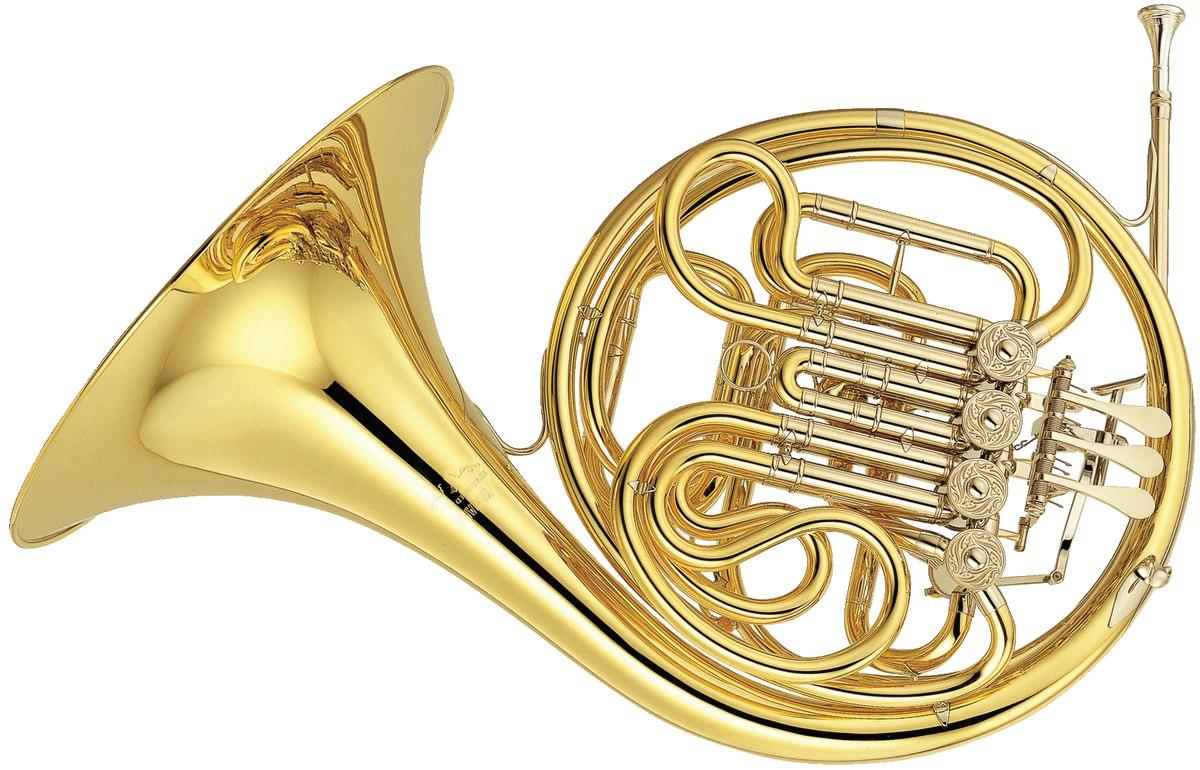
Rondo in B-Flat Major
Nocturno, Op. 7
Arnold Cooke (1906 - 2005)
Franz Strauss (1822 - 1905)
Laudatio Bernhard Krol (1920 - 2013)
Rêverie, Op. 24
Aleksandr Glazunov (1865 - 1936)
Episodes James Naigus New Beginnings (b. 1987) IV. Drive VII. Resolve
Rule, Brittania!
Thomas Arne from Folk Song Suite (1710-1778) arr. By Louis J. Stout
Largo
George Frederic Handel from Xerxes (1685 - 1759) arr. By Roscoe d’Arese
Frippery No. 8
Matthew Van Hoose, piano
Ryan Smout, horn
Jasmine Elgayar, horn
Shawn Hagen, horn
Lowell “Spike” Shaw (b. 1930)
This senior recital program is in partial fulfillment of the degree program Bachelor of Arts in Music - Horn Performance.
Julia Neff is a student in the studio of Prof. Shawn Hagen
Rondo in B-Flat Major Arnold Cooke (1906 - 2005)First recorded in 1950, Rondo in B-Flat Major is a product of Arnold Cooke’s heyday as a composer. The West Yorkshire native became one of the last British musicians to study with Paul Hindemith in Berlin prior to the Nazi regime. After serving in the Royal Navy in World War II, Cooke was appointed Professor of Harmony and Composition at Trinity College of Music in London, where he taught for the next 30 years. During this time, he produced two operas, a ballet, and countless orchestral and chamber works, including numerous pieces featuring solo horn with accompaniment.
Perhaps best known as the father of renowned composer Richard Strauss, Franz Joseph Strauss was a virtuoso horn player and a composer in his own right. He was principal horn for the Bavarian Court Opera for over 40 years, and was the horn soloist for numerous Wagner operas. He was a musical conservative, leaning more towards Mozart and Haydn in his influences than Wagner or Mahler. Nocturno, Op. 7, first published in 1864, features a sweet and singable melody which demonstrates the traditional classical ideology of Franz Strauss. This sweet tone does not reflect the elder Strauss’ reputedly “unbearable, curmudgeonly” attitude (according to Wagner himself), but his beautiful horn playing often smoothed over tensions caused by his personality.
Laudatio Bernhard Krol (1920 - 2013)Now one of the most popular unaccompanied works for horn, Laudatio was composed in 1965 during Bernhard Krol’s time as a horn player for the Stuttgart Radio Symphony Orchestra. Meaning to praise or give commendation, Laudatio is loosely derived from and references the early Christian hymn Te Deum Laudamus, and draws sonic influences from Gregorian chant. Performing solo provides a unique challenge for the horn player, with no accompanist to lean on and no rest for the facial muscles; the performer must have a clear direction and plan for the performance in order to convey the emotional magnitude of the piece. The religious background and undertones of this piece can provide a sonic structure for performers to build upon individually.
Nocturno, Op. 7 Franz Strauss (1822 - 1905)Rêverie, Op. 24
Aleksandr Glazunov (1865 - 1936)A native of Saint Petersburg, Aleksandr Glazunov was a child prodigy in composition and numerous instruments who grew up to be the longtime director of the Saint Petersburg Conservatory, a celebrated teacher, and a prolific composer. Though he was well known as a conductor and composer, he was also a talented horn player. Rêverie, Op. 24 was published in 1890, after his rise to fame but before he reached his peak of creative power while directing the Saint Petersburg Conservatory. The simplicity of the melody in this piece hints at the youth of the composer (only 25 at the time of publication), but the rhythmic complexities show a maturity gained from years of experience. Glazunov went on to mentor notable students such as Dmitri Shostakovich in his position at the conservatory, but left Russia in 1928 and never returned.
Episodes
New Beginnings
IV. Drive
VII. Resolve
James Naigus (b. 1987)Dr. James Naigus is a decorated performer and composer who is currently Lecturer of Horn at the University of Georgia, and hornist with the Georgia Brass Quintet. He has over 60 published works, and has toured the United States and Europe as a member of the American Chamber Winds and other regional orchestras. Episodes is described by Naigus as “a set of contrasting musical chapters that takes the listener through a passage of time and experience.” I chose to only perform three of the seven chapters, providing an abridged version of this story without compromising the emotional arc of the larger piece.
Rule, Brittania!
Thomas Arne (1710-1778)
from Folk Song Suite Arr. by Louis J. Stout
This 1975 arrangement of the 18th century British patriotic song Rule, Brittania! is the third song in a suite of four folk songs arranged by Louis J. Stout. Written for horn quintet, this arrangement breathes new stately life into the familiar tune. Despite its imperialistic overtones and association with one of the most destructive empires in history, this short song serves as a fitting introduction to the pleasing sonic possibilities of four horns playing in harmony.
Handel’s Largo George Frederic Handel (1685 - 1759) from Xerxes Arr. by Roscoe d’Arese
“Handel’s Largo” is the colloquial title for an aria composed by George Frederic Handel as part of his opera Serse (Xerxes in English). Closing after only five performances, the opera was a complete failure, but the aria was resurrected a century later and became popular for use in funerals and weddings. This arrangement highlights the lyrical abilities of the horn and the beautiful, warm sound created when four horns harmonize like voices in a choir.
Frippery No. 8
“Frippery” is defined by Spike himself as “a cheap, showy bauble of little intrinsic worth,” and these pieces were originally composed by him as an fun and frivolous exercise for his students while teaching at the University of Buffalo. These arrangements took classical horn students out of their comfort zone with swung rhythms and jazzy licks, and Shaw organized a popular group at the university based on the extreme interest expressed in playing this type of music so new to horn players. This “barbershop quartet” style of horn arrangement has now been popularized, with over 40 Fripperies, 19 Bipperies, 4 Tripperies, and 8 Quipperies.
— Julia Neff Lowell “Spike” Shaw (b. 1930)

